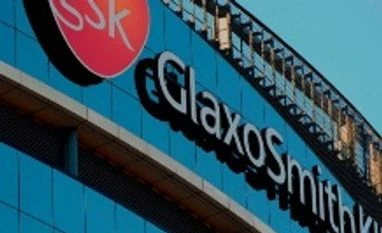A British senior executive working in China for the global pharmaceutical giant GlaxoSmithKline helped orchestrate a long-running bribery and fraud scheme that involved making secret payments to doctors, hospital staff and government officials to bolster drug sales in China, the authorities said Wednesday.
The Chinese police accused the executive, Mark Reilly, the former head of Glaxo's China operations, of ordering his subordinates to form a "massive bribery network" that resulted in illegal revenue of more than $150 million and of driving up drug prices.
The authorities said Reilly, who is British, and two Chinese-born Glaxo executives, Zhang Guowei and Zhao Hongyan, even arranged to bribe government officials in Beijing and Shanghai.
The police did not say whether they had detained Reilly, who left China after the investigation got underway last summer. He then returned to assist in the investigation, and may still be in China. A spokesman for the British Embassy in Beijing said Wednesday that they are assisting Reilly. It is rare for foreign-born executives from multinational companies to be charged with crimes in China.
The two Chinese executives, Zhang, the company's human resources director, and Zhao, the head of the legal affairs department, are being held in China and are expected to face prosecution. The authorities say that 46 people have been implicated in the case, and that part of the scheme involved inflating drug prices in the Chinese market, making them as much as seven times more expensive than elsewhere.
The case, which was first uncovered by the police in July, has dealt a devastating blow to Glaxo's fast-growing business in China and has shaken up other global drug makers operating here. Many were using the same small Shanghai travel agency that the authorities said specialised in doctoring corporate travel expenses to pay cash bribes to doctors, hospital staff and government employees.
A spokesman for Glaxo, which is based in London, was not available for comment early Wednesday. But the company apologised last year for the "shameful" conduct of some of its senior executives in China. It also said repeatedly that the scandal involved just a handful of rogue Chinese-born employees who were billing the company with phony travel receipts, then using the cash to bribe doctors and others, as well as siphoning off extra money for themselves.
The authorities in China said in July that several of the Chinese executives had confessed to "economic crimes". The police also shut down the Shanghai Linjiang International Travel Agency for its role in what they called a kickback and money-laundering scheme.
Documents reviewed by The New York Times showed that at least six other global pharmaceutical companies had used the same small travel agency, though it is unclear whether any wrongdoing took place.
When the case broke, many pharmaceutical executives complained privately that it was part of a Chinese government effort to control drug prices in China and punish highly profitable multinational companies.
The authorities, though, have said that the big drug companies have done similar things in other countries and that the case involved massive fraud against consumers.
The Chinese police accused the executive, Mark Reilly, the former head of Glaxo's China operations, of ordering his subordinates to form a "massive bribery network" that resulted in illegal revenue of more than $150 million and of driving up drug prices.
The authorities said Reilly, who is British, and two Chinese-born Glaxo executives, Zhang Guowei and Zhao Hongyan, even arranged to bribe government officials in Beijing and Shanghai.
The police did not say whether they had detained Reilly, who left China after the investigation got underway last summer. He then returned to assist in the investigation, and may still be in China. A spokesman for the British Embassy in Beijing said Wednesday that they are assisting Reilly. It is rare for foreign-born executives from multinational companies to be charged with crimes in China.
The two Chinese executives, Zhang, the company's human resources director, and Zhao, the head of the legal affairs department, are being held in China and are expected to face prosecution. The authorities say that 46 people have been implicated in the case, and that part of the scheme involved inflating drug prices in the Chinese market, making them as much as seven times more expensive than elsewhere.
The case, which was first uncovered by the police in July, has dealt a devastating blow to Glaxo's fast-growing business in China and has shaken up other global drug makers operating here. Many were using the same small Shanghai travel agency that the authorities said specialised in doctoring corporate travel expenses to pay cash bribes to doctors, hospital staff and government employees.
A spokesman for Glaxo, which is based in London, was not available for comment early Wednesday. But the company apologised last year for the "shameful" conduct of some of its senior executives in China. It also said repeatedly that the scandal involved just a handful of rogue Chinese-born employees who were billing the company with phony travel receipts, then using the cash to bribe doctors and others, as well as siphoning off extra money for themselves.
The authorities in China said in July that several of the Chinese executives had confessed to "economic crimes". The police also shut down the Shanghai Linjiang International Travel Agency for its role in what they called a kickback and money-laundering scheme.
Documents reviewed by The New York Times showed that at least six other global pharmaceutical companies had used the same small travel agency, though it is unclear whether any wrongdoing took place.
When the case broke, many pharmaceutical executives complained privately that it was part of a Chinese government effort to control drug prices in China and punish highly profitable multinational companies.
The authorities, though, have said that the big drug companies have done similar things in other countries and that the case involved massive fraud against consumers.
©2014 The New York Times News Service
)